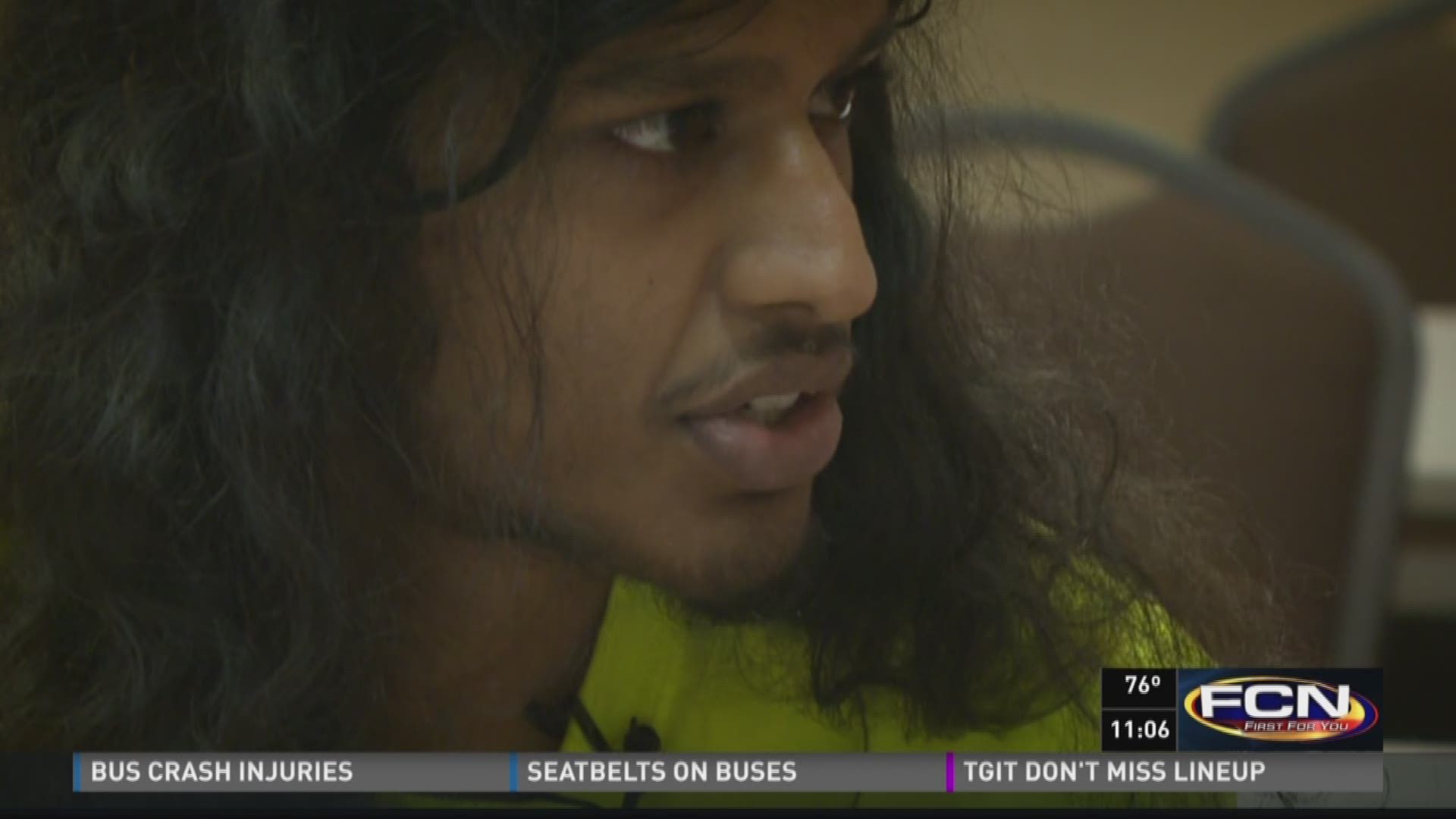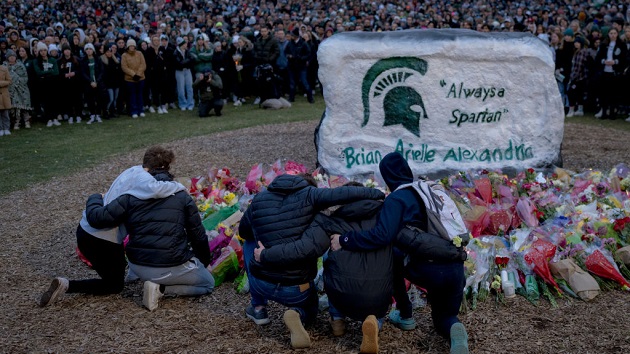Mixed Reactions To FSU's Plan To Resume Classes After Deadly Shooting

Table of Contents
Student Reactions: A Spectrum of Emotions
The student body's response to FSU's decision to resume classes reflects a wide range of emotions, from fear and anxiety to resilience and a desire to return to normalcy. This complex response highlights the challenges the university faces in supporting its students during this difficult time.
Fear and Anxiety Among Students
Many students express deep-seated anxieties about returning to campus. The lingering trauma of the shooting has left many feeling vulnerable and unsafe.
- Insufficient Security Measures: Several students have voiced concerns about the perceived inadequacy of current security measures on campus, citing a need for increased police presence and improved surveillance systems.
- Lack of Mental Health Resources: Students have highlighted a shortage of readily available mental health resources, expressing the need for more readily accessible counselors and support groups to address the emotional toll of the tragedy.
- Fear of Recurrence: The fear of another similar incident happening remains a significant concern for many students, impacting their ability to focus on their studies and feel safe on campus.
"I'm terrified to go back," said Sarah Miller, a junior majoring in psychology. "I don't feel safe, and I'm worried that the university isn't doing enough to ensure our safety." Other students have organized petitions demanding more concrete security improvements before classes resume.
Resilience and a Desire to Return to Normalcy
Despite the fear and uncertainty, many students express a strong desire to return to their studies and maintain a sense of community.
- Importance of Education: Many students see continuing their education as a way to honor the victims and move forward with their lives.
- Community Support: Student-led initiatives, support groups, and memorial services are creating spaces for collective healing and mutual support.
- Determination to Overcome: A significant portion of the student body shows remarkable resilience, determined to overcome the trauma and continue their academic pursuits.
"We can't let fear win," commented David Chen, a senior. "We need to come together, support each other, and honor the memory of those we've lost by continuing our studies and rebuilding our community." Several student-led initiatives are focused on providing peer-to-peer support and advocating for improved mental health services on campus.
Faculty Concerns and Perspectives
Faculty members also express a diverse range of concerns, primarily focused on student well-being and the preparedness of the university to resume classes safely and effectively.
Concerns about Student Well-being
Faculty are deeply concerned about the emotional and mental health of their students. Many are worried about students' ability to focus on their studies given the trauma they have experienced.
- Need for Extended Support: Faculty members are advocating for extended mental health support services, including readily available counseling and academic accommodations for students struggling to cope with the aftermath of the shooting.
- Emotional Preparedness: There are concerns that many students may not be emotionally prepared to return to a normal academic schedule.
- Impact on Academic Performance: Faculty members are worried about the potential impact of the trauma on students' academic performance and are exploring methods to provide appropriate support and flexibility.
"We need to ensure that our students have the support they need to heal and succeed academically," stated Dr. Emily Carter, a professor in the English department. "Simply resuming classes without adequate mental health support is irresponsible." Several faculty members have proposed extending deadlines, offering flexible grading policies, and integrating trauma-informed practices into their teaching.
Academic Preparedness and Safety Protocols
Beyond student well-being, faculty members also have concerns about the readiness of classrooms and facilities.
- Insufficient Security Upgrades: Some faculty members question whether the security upgrades implemented by FSU are sufficient to guarantee a safe learning environment.
- Concerns About Timeline: Some faculty feel the timeline for resuming classes is too rushed, given the ongoing emotional distress within the student body.
- Safety Protocol Training: Faculty members are emphasizing the need for thorough safety protocol training for all staff and students.
"We need to ensure that all safety protocols are in place and that faculty and students are properly trained before resuming classes," commented Dr. Michael Davis, a professor in the history department. Faculty members have actively participated in university discussions regarding safety protocols and class resumption plans.
FSU's Response and Security Enhancements
In response to the shooting, FSU has implemented a range of security enhancements and support services. However, the effectiveness and sufficiency of these measures remain a subject of debate.
Enhanced Security Measures
FSU has announced several security upgrades, including:
- Increased Police Presence: A noticeable increase in police patrols and security personnel across campus.
- Improved Surveillance: Upgrades to existing surveillance systems, including the installation of additional security cameras.
- Access Controls: Enhanced access controls to buildings and restricted areas.
- Emergency Response Protocols: Review and refinement of emergency response protocols, including improved communication systems.
The university is also working on long-term security improvements based on the recommendations of security experts and external reviews.
Support Services and Counseling
FSU has expanded its support services to include:
- Grief Counseling: Increased availability of grief counseling services for students and faculty.
- Mental Health Resources: Expanded access to mental health professionals and support groups.
- Academic Support Programs: Additional academic support programs to assist students struggling with their studies.
- Trauma-Informed Care Training: Training for faculty and staff on providing trauma-informed care.
These initiatives aim to address the emotional and mental health needs of the university community.
Communication and Transparency
FSU's communication strategy regarding the decision to resume classes has been met with mixed reactions. While the university has attempted to keep the community informed, some have criticized a lack of transparency and open dialogue with students and faculty.
Open communication channels, regular updates, and opportunities for feedback are essential for building trust and fostering a collaborative approach to healing and recovery.
Conclusion
The decision by FSU to resume classes after the devastating campus shooting has elicited a complex range of emotions. While some students and faculty express a desire to return to normalcy and honor the victims, significant concerns remain about safety and student well-being. FSU’s response, including enhanced security measures and expanded support services, is crucial in navigating this challenging period. However, sustained commitment to student mental health and ongoing dialogue with the university community are essential for healing and rebuilding.
Call to Action: Understanding the diverse reactions to FSU’s plan to resume classes after the tragedy is critical for fostering a supportive and safe learning environment. Continued discussion and collaboration between the university, students, and faculty are vital to ensuring the long-term well-being of the FSU community. Let's continue the conversation about building a stronger, safer FSU for all.

Featured Posts
-
 Pope Franciss Enduring Influence A Conclave Perspective
Apr 22, 2025
Pope Franciss Enduring Influence A Conclave Perspective
Apr 22, 2025 -
 La Fires Fuel Landlord Price Gouging A Selling Sunset Star Speaks Out
Apr 22, 2025
La Fires Fuel Landlord Price Gouging A Selling Sunset Star Speaks Out
Apr 22, 2025 -
 Hollywood Strike Actors Join Writers Bringing Production To A Halt
Apr 22, 2025
Hollywood Strike Actors Join Writers Bringing Production To A Halt
Apr 22, 2025 -
 Fsus Response To Campus Shooting A New Plan For Returning To Classes
Apr 22, 2025
Fsus Response To Campus Shooting A New Plan For Returning To Classes
Apr 22, 2025 -
 Ai Powered Podcast Creation Transforming Repetitive Scatological Documents
Apr 22, 2025
Ai Powered Podcast Creation Transforming Repetitive Scatological Documents
Apr 22, 2025
